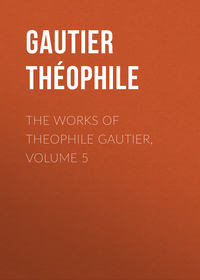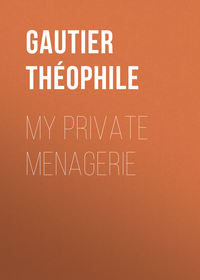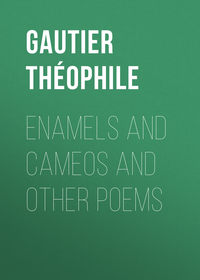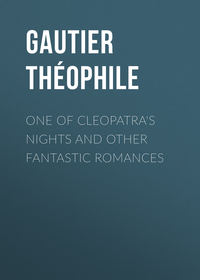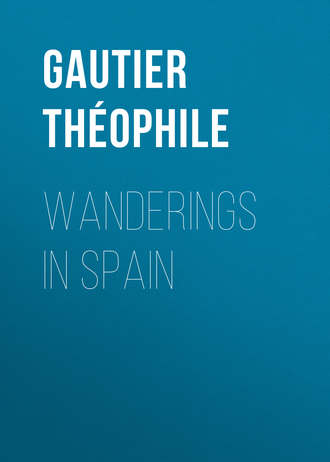 полная версия
полная версияWanderings in Spain
Beyond Mondragon, which is the last small market-town, the last pueblo of the province of Guipuzcoa, we entered the province of Alava, and were not long before we found ourselves at the foot of the hill of Salinas. The Montagnes Russes3 are nothing compared to this, and, at first sight, the idea of a carriage passing over it appears as preposterous as that of your walking head downwards on the ceiling like a fly. This prodigy was however effected, thanks to six oxen which were harnessed on before the mules. Never in my whole life did I hear so horrible a disturbance; the mayoral, the zagal, the escopeteros, the postilion, and the oxen-drivers, tried which could excel each other in hooting, swearing, using their whips, and exercising their goads; they thrust forward the wheels, held up the body of the coach behind, and pulled on the mules by their halters and the oxen by their horns, with a most incredible amount of fury and vehemence. The coach thus placed at the end of this long string of animals and men, produced a most astonishing effect. There were, at least, fifty paces between the first and last beast in the team. I must not forget to mention, en passant, the steeple of Salinas, which has a very pleasing Saracenic form. From the top of the hill the traveller beholds on looking back, the Pyrenees rising one above the other until lost in the distance; they resemble immense pieces of rich velvet drapery, thrown together by chance and rumpled by the whim of a Titan. At Royane, which is a little further on, I observed a magical effect in optics. A snowy mountain-top (Sierra Nevada), that the proximity of the other mountains had till then veiled from our sight, suddenly appeared standing out from the sky, which was of a blue so dark as to be almost black. Soon afterwards, at all the edges of the table-land we were traversing, more mountains raised, in a most curious manner, their summits loaded with snow and bathed in clouds. This snow was not compact, but divided into thin veins like sides of gauze worked with silver; it appeared still whiter from the contrast it formed with the azure and lilac tints of the precipices. The cold was tolerably severe, and became more intense in proportion as we advanced. The wind had not warmed itself by caressing the pale cheeks of these beautiful and chilly virgins, and came to us as icy as if it had arrived direct from the North or South Pole. We wrapped ourselves up as hermetically as we could in our cloaks, for it is extremely scandalous to have your nose frost-bitten in a torrid clime; I should not have cared had we been merely fried.
The sun was setting when we entered Vittoria; after threading all sorts of streets, of but middling architectural style and very bad taste, the coach stopped at the parador vejo, where our luggage was scrupulously examined. Our Daguerreotype especially alarmed the worthy custom-house officers a good deal; they approached it with the greatest precautions, like people who are afraid of being blown up; I think they imagined it to be an electrifying machine, and I took care not to undeceive them.
As soon as our things had been searched and our passports stamped, we had the right to scatter ourselves over the pavement of the town. We immediately took advantage of this, and, crossing a fine square surrounded by arcades, proceeded straightway to the church. The shades of night already filled the nave, and lowered with a mysterious and threatening look in obscure corners, where phantom-like forms might now and then be seen. A few small lamps, yellow and smoky, trembled ominously like stars in a fog. A sort of sepulchral chill came over me, and it was not without a slight feeling of dread that I heard a mournful voice murmur, just at my elbow, the stereotyped formula "Caballero, una limosina por l'amor de Dios." It was a poor wretch of a soldier who had been wounded, and who was asking an alms of us. In this country the soldiers beg; this is excusable on account of their miserable state of destitution, for they are paid very irregularly. In the church at Vittoria I became acquainted with those frightful sculptures in coloured wood, the use of which the Spaniards carry to such excess.
After a supper (cena) which caused us to regret that at Antigarraga, we suddenly thought of going to the play. We had been allured, as we passed along, by a pompous poster announcing the extraordinary performances of two French Herculeses, which were to terminate with a certain baile nacional (national dance), which we pictured to ourselves big with cachuchas, boleros, fandangos, and other diabolical dances.
The theatres in Spain have generally no façade, and are only distinguished from the houses around by two or three smoky lamps stuck before the door. We took two orchestra-stalls, surnamed places de lunette (asientos de luneta), and bravely precipitated ourselves into a corridor, where the floor was neither planked nor paved, but was nothing more or less than the bare earth. The frequenters of the place are not very particular about the uses to which they turn the walls of the corridor, but, by hermetically sealing our noses, we reached our places not more than half suffocated. When I add that smoking is perpetually practised between the acts, the reader will not have a very fragrant idea of a Spanish theatre.
The interior of the house is, however, more comfortable than the approaches to it promise; the boxes are tolerably arranged, and although the decorations are simple, they are fresh and clean. The asientos de luneta are armchairs placed in rows and numbered; there is no checktaker at the door to take your tickets, but a little boy comes round for them before the end of the performance; at the outer door you are merely asked for the card that admits you within the theatre.
We had hoped to find the true type of the Spanish woman, of which we had as yet seen but few specimens; but the ladies who filled the boxes and galleries had nothing Spanish about them save the mantilla and the fan: this was a good deal, it is true, but not sufficient. The audience was mostly composed of the military, which is the case in all garrison towns. In the pit, the spectators stand as in the most primitive theatres. There was, in truth, but a row of candles and a candle-snuffer wanting to give the place the appearance of the Hôtel de Bourgogne; the lamps, however, were enclosed by thin plates of glass, disposed in the shape of a melon, and united at the top by a circle of tin: this was certainly no great sign of an advanced state of the industrial arts. The orchestra, which consisted of one row of musicians, almost all of whom played brass instruments, blew most valiantly on their cornets-à-piston an air which was always the same, and recalled to one's recollection the flourishes of the band at Franconi's.
Our Herculean compatriots raised immense weights, and bent a considerable number of iron bars, to the great delight of the assembly; while the lighter of the two made an ascent upon the tight rope, and performed a variety of other feats, rather stale in Paris, but new, probably, to the population of Vittoria. During this time we were dying with impatience in our stalls, and I was cleaning the glass of my lorgnette with a furious degree of activity, in order not to lose anything of the baile nacional. At last, the supports of the tight-rope were loosened, and the stage-carpenters, dressed as Turks, cleared away the weights and all the other paraphernalia of the Herculeses. Think, dear reader, of the frightful anxiety of two enthusiastic and romantic young Frenchmen about to behold, for the first time, a Spanish dance … in Spain!
At last the curtain rose upon a scene which seemed to entertain a feeble desire, which was certainly not gratified, of being enchanting and fairy-like. The cornets-à-piston played, with more fury than ever, the strain already described, and the baile nacional advanced in the form of a danseur and danseuse, armed with a pair of castagnettes each. Never have I seen anything more sad and lamentable than these two miserable ruins qui ne se consolaient pas entre eux: a penny theatre never bore upon its worm-eaten boards a couple more used-up, more worn-out, more toothless, more blear-eyed, more bald, and more dilapidated. The wretched woman, who had besmeared herself with bad Spanish white, had a sky-blue complexion, which recalled to your mind the Anacreontic pictures of a person who had died of cholera, or been drowned some time; the two dabs of rouge that she had placed upon her prominent cheek-bones, to add a little brilliancy to her fishy eyes that seemed as if they had been boiled, contrasted strangely with the aforesaid blue. With her veiny and emaciated hands she shook a pair of cracked castagnettes, which chattered like the teeth of a man who has got a fever, or like the wires of a skeleton in motion. From time to time, she stretched, with a desperate effort, the relaxed fibres of her calves, and managed to raise her poor old baluster-looking leg, so as to produce a nervous little capriole, like a dead frog submitted to the operation of the voltaic battery, and, for a second, to cause the copper spangles of the doubtful rags which served her for a robe, to sparkle and glisten. As for the man, he kept fluttering about most horribly in his own corner; he rose and fell flatly, like a bat crawling along upon its stumps; he looked like a grave-digger burying himself. His forehead, wrinkled like a boot, and his goat-like cheeks, gave him a most fantastic air: if, instead of castagnettes, he had only had a Gothic rebec in his hands, he might have set up to lead the Dance of Death at Basle.
During all the time the dance lasted, they did not once raise their eyes on one another; it struck you that they were frightened of their reciprocal ugliness, and feared lest they should burst into tears at seeing themselves so old, so decrepit, and so mournful. The man, especially, avoided his companion as if she had been a spider, and appeared to shiver in his old parchment skin every time the figure of the dance forced him to approach her. This lively bolero lasted five or six minutes, after which the fall of the curtain put an end to the torture of these two wretched beings, … and to ours.
Such was the specimen of the bolero which greeted our poor eyes, so enamoured of "local colouring." Spanish dancers exist only at Paris, like the shells which are only found at the curiosity-shops, and never on the sea shore. O Fanny Elssler, who art now in America, among the savages! even before going to Spain, we always had an idea that it was thou who inventedst the cachucha!
We went to bed rather disappointed. In the middle of the night we were woke up to resume our journey. The cold was still intense, to a Siberian extent; this is accounted for by the height of the table-land we were crossing, and the snow by which we were surrounded. At Miranda, our trunks were once more examined, and then we entered Old Castile (Castilla la Vieja), the kingdom of Castile and Leon, symbolically represented by a lion holding a shield studded with castles. These lions, which are repeated until you are sick of them, are generally of a greyish granite, and have rather an imposing heraldic appearance.
Between Ameyugo and Cubo, small insignificant towns, where we changed mules, the landscape is extremely picturesque; the mountains contract and draw near one another, while immense perpendicular rocks, as steep as cliffs, rise up at the road-side. On the left, a torrent, crossed by a bridge with a truncated ogive arch, whirls round and round at the bottom of a ravine, turns a mill, and covers with spray the stones that stop its course. That nothing may be wanting to complete the effect, a gothic church, falling to ruin, with its roof staved in, and its walls covered with parasite plants, rises in the midst of the rocks; in the background is seen the vague and bluish outline of the Sierra. The view is certainly very fine, but the passage of Pancorbo carries off the palm for singularity and grandeur. There the rocks leave only just room enough for the road, and there is one point where two immense granite masses, leaning towards one another, give you the idea of a gigantic bridge, which has been cut in the middle, to stop the march of an army of Titans. A second, but smaller, arch, pierced through the thickness of the rock, adds still more to the illusion. Never did a scene-painter imagine a more picturesque and more admirably-contrived scene. When you are accustomed to the flat views of plains, the astonishing effects met with at every step, in the mountains, appear impossible and fabulous.
The posada where we stopped to dine had a stable for a vestibule. This architectural arrangement is invariably repeated in all Spanish posadas, and to reach your room you are obliged to pass behind the cruppers of the mules. The wine, which was blacker than usual, had a certain taste of goat-skin sufficiently local. The maidservants of the inn wore their hair hanging down to the middle of their backs, but, with this exception, their dress was the same as that of French women of the lower classes. The national costumes are, in general, seldom preserved, save in Andalusia, and, at present, there are very few ancient costumes in Castile. The men wore the pointed hat, edged with velvet and silk tufts, or a wolf-skin cap of rather ferocious shape, and the inevitable tobacco or dirty-coloured mantle. Their faces, however, had nothing characteristic about them.
Between Pancorbo and Burgos we fell in with three or four little villages, such as Briviesca, Castil de Peones, and Quintanapalla, half in ruins, as dry as pumice-stone, and of the colour of a toast. I doubt whether Decamps ever found in the heart of Asia Minor, any walls more roasted, more reddened, more tawny, more seedy, more crusty, and more scratched over, than these. Along these said walls wandered carelessly certain asses, who are decidedly well worth the Turkish ones, and which I would advise him to go and study. The Turkish ass is a fatalist, and, as is evident from his humble air, resigned to the blows which Fate has in store for him, and which he endures without a murmur. The Castilian ass has a more philosophical and deliberate look; he is aware that people cannot do without him; he makes one of the family; he has read Don Quixote, and he flatters himself that he is descended in a straight line from the celebrated donkey of Sancho Panza. Side by side with these asses were also dogs of the purest blood and most superb breed, with splendid claws, broad backs, and beautiful ears, and among the rest some large greyhounds, in the style of Paul Veronese and Velasquez, of most magnificent size and beauty, not to speak of some dozen muchachos, or boys, whose eyes glistened in the midst of their rags, like so many black diamonds.
Old Castile is, doubtless, so called, on account of the great number of old women you meet there; and what old women! The witches in "Macbeth" crossing the heath of Dunsinane, to prepare their diabolical cookery, are charming young girls in comparison: the abominable hags in the capricious productions of Goya, which I had till then looked upon as monstrous nightmares and chimeras, are but portraits frightfully like; most of these old women have a beard like mouldy cheese, and moustaches like French grenadiers; and then, their dress! You might take a piece of cloth, and work hard ten years to dirty, to rub, to tear, to patch, and to make it lose all traces of its original colour, and you would not even then attain the same sublimity of raggedness! These charms are increased by a haggard and savage look, very different from the humble and piteous mien of the poor wretches in France.
A little before reaching Burgos, a large edifice, situated upon a hill, was, in the distance, pointed out to us. It was the Cartuja de Miraflores (Carthusian convent), of which I shall have occasion, later, to speak more at length. Soon afterwards the spires of the Cathedral displayed their embrasures more and more distinctly against the sky, and in another half-hour we were entering the ancient capital of Old Castile.
The public place of Burgos, in the midst of which stands a very middling bronze statue of Charles III., is large, and not without some character. Red houses, supported by pillars of bluish granite, inclose it on all sides. Under the arcades and on the place, are stationed all sorts of petty dealers, besides an infinite number of asses, mules, and picturesque peasants who promenade up and down. The rags of Castile are seen there in all their splendour. The poorest beggar is nobly draped in his cloak, like a Roman emperor in his purple. I know nothing better with which to compare these cloaks, for colour and substance, than large pieces of tinder jagged at the edges. Don Cæsar de Bazan's cloak, in the drama of "Ruy Blas," does not come near these proud and haughty rags. They are all so threadbare, so dry, and so inflammable, that it strikes you the wearers are very imprudent to smoke or strike a light. The little children, also, six or eight years old, have their cloaks, which they wear with the most ineffable gravity. I cannot help laughing at the recollection of a poor little wretch, who had nothing left but a collar which hardly covered his shoulder, and who draped himself in the absent folds with an air so comically piteous, that he would have unwrinkled the countenance of the Spleen in person. The men condemned to the presidio (convicts) sweep the town and clear away the filth, without quitting the rags in which they are swathed. These convicts in cloaks are the most astonishing blackguards it is possible to behold. After each stroke of their broom, they go and sit down, or else recline upon the door-steps. Nothing would be easier for them than to escape; and on my hinting this, I was informed that they did not do so on account of the natural goodness of their disposition.
The fonda where we alighted was a true Spanish fonda, where no one spoke a word of French; we were fairly obliged to exert our Castilian, and to tear our throats with uttering the abominable jota– a guttural and Arabian sound which does not exist in our language. I must confess that, thanks to the extreme intelligence which distinguishes the people, we made ourselves understood pretty well. They sometimes, it is true, brought us candles when we asked for water, or chocolate when we desired ink; but, with the exception of these little mistakes, which were very pardonable, everything went on beautifully. We were waited on by a population of masculine and dishevelled females, with the finest names in the world; as, for instance, Casilda, Matilda, and Balbina. Spanish names are always charming. Lola, Bibiana, Pepa, Hilaria, Carmen, Cipriana, serve to designate some of the most unpoetical beings it is possible to imagine. One of the creatures who waited on us had hair of the most fiery red. Light haired, and especially red haired persons abound in Spain, contrary to the generally-received idea.
We did not find any holy box-wood in the rooms, but branches of trees, in the shape of palms, plaited, woven, and twisted with great elegance and care. The beds possess no bolsters, but have two flat pillows placed one on the other. They are generally extremely hard, although the wool of which they are composed is good; but the Spanish are not accustomed to card their mattresses, merely turning the wool with the aid of two sticks. Opposite our windows hung a strange kind of sign-board. It belonged to a surgical practitioner, who had caused himself to be represented in the act of sawing off the arm of a poor devil seated in a chair; we also perceived the shop of a barber, who, I can assure my readers, did not bear the least resemblance to Figaro. Through the panes of his shop-front we could see a large and rather highly-polished brazen shaving-dish, which Don Quixote, had he still been of this world, might easily have mistaken for Mambrino's helmet. It is true that the Spanish barbers have lost their ancient costume, but they still retain their former skill, and shave with great dexterity.
Although Burgos was long the first city of Castile, there is nothing peculiarly Gothic in its general appearance. With the exception of one street, in which there are a few windows and door-ways of the time of the Renaissance, and ornamented with coats of arms and their supporters, the houses do not date further back than the commencement of the seventeenth century, and merely strike the observer by their very commonplace look; they are old, but they are not ancient. Burgos, however, can boast of its Cathedral, which is one of the finest in the world; but, unfortunately, like all Gothic cathedrals, it is hemmed in by a number of ignoble structures, which prevent the eye from appreciating the general disposition of the building and seizing the whole mass at one glance. The principal entrance looks out upon a large square, in the middle of which is a handsome fountain, surmounted by a delicious statue of Our Saviour in white marble. This fountain serves as a target to all the idle vagabonds of the town who can find no more amusing occupation than to throw stones at it. The entrance, which I have just mentioned is magnificent, being worked and covered with a thousand different patterns like a piece of lace. Unfortunately it has been rubbed and scraped down to the outer frieze by some Italian prelates or other, who were great admirers of architectural simplicity, of plain walls and ornaments in "good taste," and wished to arrange the cathedral in the Roman style, pitying very much the poor, barbarous architects, for not employing the Corinthian order, and not appearing to have been alive to Attic beauty and the charm of triangular frontons.
There are still many people of this way of thinking in Spain, where the so-called Messidor style flourishes in all its purity. These persons prefer to the richest and most profusely carved specimens of Gothic architecture, all sorts of abominable edifices riddled with windows, and ornamented with Pæstumian columns, exactly as was the case in France before the disciples of the Romantic School had caused the public to appreciate once more the style of the Middle Ages, and understand the meaning and the beauty of their cathedrals. Two pointed spires, carved in zigzag, and pierced as if with a punch, festooned, embroidered, and sculptured with most delicate minuteness, like the bezel of a ring, spring upwards towards Heaven with all the ardour and impetuosity of unshakable conviction. It is very certain that the campaniles of our incredulous times would never dare to rise thus into the air with nothing to support them, save so much stone lacework and nerves as thin as a spider's web. Another tower, which is also adorned with an unheard-of profusion of sculpture, but which is not so high, marks the spot where the arms of the cross join, and completes the magnificence of the outline. A countless number of statues, representing saints, archangels, kings, and monks, ornament the whole; and this population of stone is so numerous, so crowded, so multitudinous, that it must most certainly exceed the population in flesh and blood that inhabit the town.
Thanks to the charming politeness of the political chief, Don Enrico de Vedia, we were enabled to visit the cathedral most minutely. An octavo volume of description, a folio of two thousand plates, and twenty rooms filled with plaster casts would not be sufficient to convey a complete idea of this prodigious production of Gothic art with its immense mass of sculptures, more thick and more complicated than a virgin forest in Brazil. Such being the case, we shall, perhaps, be pardoned for some few slight omissions and instances of seeming negligence, having been obliged to scribble these lines hastily and from recollection, on the table of a posada.
The moment the visitor enters the church, he is forcibly arrested by a chef-d'œuvre of incomparable beauty, namely, the carved wooden door leading to the cloisters. Among the other bas-reliefs upon it, there is one representing our Saviour's entry into Jerusalem: the jambs and crosspieces are covered with delicious little figures, so elegant in their form, and of such extreme delicacy, that it is difficult to understand how so heavy and solid a substance as wood could ever be made to lend itself to so capricious and ethereal a production of the imagination. It is certainly the most beautiful door in the whole world, if we except that executed by Ghiberti, at Florence, and which Michael Angelo, who understood something about these matters, pronounced worthy of being the door of Paradise. There certainly ought to be a bronze copy taken of this admirable work of art, so that it might at least live as long as the work of men's hands can live.


